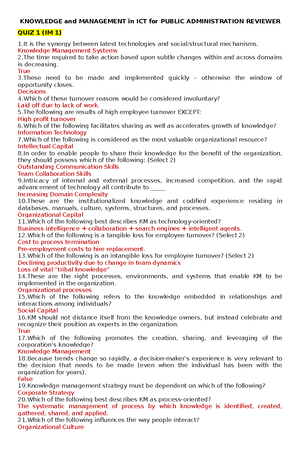- Information
- AI Chat
Was this document helpful?
Community Control Over Administration
Course: Theory & Practice of Public Administration (PA 56)
458 Documents
Students shared 458 documents in this course
University: Aklan State University
Was this document helpful?

COMMUNITY CONTROL OVER ADMINISTRATION
INTRODUCTION
People generally do not bother about the governmental machinery as they are busy in
their daily pursuits with little time to think of the governmental machinery, yet the fact
remains that it is they who set the whole mechanism of democratic government in
motion. They elect the head of the state and the members of legislature directly or
indirectly. In some countries they even elect the officials.
Election
The head of the state is usually elected by the people directly or indirectly. The president
of Nigeria and USA are elected directly by the people. But the prime minister in a
parliamentary system is the leader of the party returned in majority by the people. The
ministers are the members of the legislative and are elected by the people. The top
administrative officials are responsible to the elected representatives of the people. In
other words, these officials become indirectly responsible to the people and come under
their control.
In some countries, like Nigeria, USA and Switzerland, there is the system of electing the
administrative officials as well. This system ensures direct popular control over
administration but it introduces political consideration into administration and
encourages favoritism and patronage. It may also lead to inefficiency and corruption.
Moreover, the people are generally ignorant and hence incapable of assessing the
qualification and personal achievements of administrators. It is also impossible in some
countries to elect all the officials. Hence, from the point of view of administrative
efficiency, integrity and impartiality, election of officials by the people is undesirable and
can hardly be advocated.
Recall
The system of recall is the logical corollary of the election of officials. Under the system,
the electorate can call for the dismissal of an official before the expiry of his/her term.
The system of recall makes the official continuously subject to popular whims and
understanding and thus neglectful of the correct practices of his/her profession. However,
the system of recall is very rarely resorted to if Prof. Charles Worth opinion is to be
relied on. His position is that “the recall though not reduce the influence of bosses,
corporations, or other special interests, it is just as useful and as available to bad
elements as to good. More so, it has been determined that it has no warning effect upon
an official who is about to make a mistake or to prepare a crime”.





